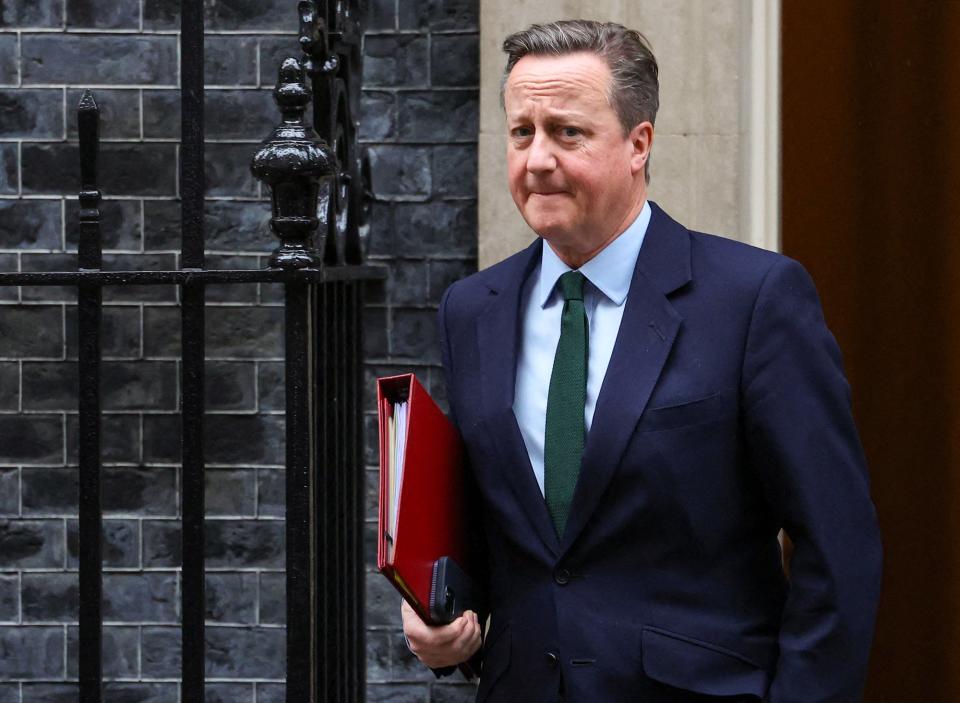US voices concerns over use of 'broad and vague' definitions in Hong Kong's Article 23 national security law to stifle dissent
Washington has expressed concerns that "broad and vague" definitions in Hong Kong's home-grown national security law could be used to stamp out dissent and its proposed long-arm jurisdiction might be exercised to "intimidate and restrict" Americans.
Joining the fray after China hit back at Britain's own worries, US State Department spokesman Matthew Miller on Thursday offered his country's strongest stance on the coming legislation so far by warning it risked compounding the effects of the Beijing-imposed security law that he said had curtailed rights and freedoms.
"We are particularly concerned by Hong Kong authorities' proposal to adopt broad and vague definitions of 'state secrets' and 'external interference' that could be used to eliminate dissent through the fear of arrest and detention," he said.
Do you have questions about the biggest topics and trends from around the world? Get the answers with SCMP Knowledge, our new platform of curated content with explainers, FAQs, analyses and infographics brought to you by our award-winning team.
Theft of state secrets and external interference are two of the five offences proposed in the new security legislation, which Hong Kong is required to pass under Article 23 of the Basic Law, its mini-constitution. The three others are treason, insurrection and sabotage endangering national security.
"We are also concerned that Hong Kong authorities will apply Article 23 extraterritorially in their ongoing campaign of transnational repression to intimidate and restrict the free speech of US citizens and residents," Miller said.
He added that enacting further national security legislation with "vaguely defined provisions and purported extraterritorial reach" would further violate Beijing's international commitments and undermine the "one country, two systems" governing principle.
Earlier in the day, Beijing hit back at "groundless attacks" on the proposed law after British Foreign Secretary David Cameron said it would inhibit freedom of expression and threaten legitimate diplomatic activities in Hong Kong.
The Chinese embassy in London said the Sino-British Joint Declaration did not give Britain the right to intervene in Hong Kong's affairs, after Cameron revealed UK officials had raised their concerns over the bill "privately" with city authorities.
"We firmly oppose the groundless attacks by British politicians on the legislation of Article 23 of Hong Kong's Basic Law," an embassy spokesman said.
The joint declaration, signed between Britain and China on September 26, 1984, set out the terms of Hong Kong's return to Chinese sovereignty on July 1, 1997.
The embassy on Thursday said Hong Kong's domestic legislation was "fully in line with international law and common practice in various countries and regions", adding that the British government's concerns were groundless and biased.

David Cameron leaving 10 Downing Street in London last month. The British foreign secretary has urged the Hong Kong government to reconsider its proposal for the law. Photo: AFP alt=David Cameron leaving 10 Downing Street in London last month. The British foreign secretary has urged the Hong Kong government to reconsider its proposal for the law. Photo: AFP>
"On the contrary, the British national security law has a vague concept and broad authorisation for law enforcement agencies, making it extremely easy for it to be abused," the spokesman said.
"The British authorities should self-reflect instead of pointing fingers at others."
In a separate and longer statement, China's foreign ministry office in Hong Kong expressed its opposition to the British minister's "irresponsible remarks" and "malicious smear" regarding the security legislation proposal.
The condemnations follow the British foreign minister's statement issued on Wednesday urging the Hong Kong government to reconsider the proposal for the law and engage in "genuine and meaningful consultation" with residents.
Cameron said British officials had raised concerns about the Article 23 proposal "privately" with Hong Kong authorities and during the consultation process as he was concerned that the new law would have a "negative impact on the people of Hong Kong in the exercise of their rights and freedoms".
"The toughening of penalties for speech crimes and the use of the broadly defined term 'state secrets' will inhibit freedom of speech, of expression and of the press," he said.
"Vague references to 'external forces' and the new offence of 'external interference' threaten legitimate and lawful diplomatic and consular activity as protected in the Vienna Convention on Consular Relations."
Cameron added that while the consultation paper on the legislation made extensive references to several British national security laws, these were subjected to full scrutiny by the democratically elected House of Commons, thus ensuring democratic legitimacy.
"I strongly urge the Hong Kong SAR government to reconsider their proposals and engage in genuine and meaningful consultation with the people of Hong Kong," he said.
The public consultation for the legislation ended on Wednesday. The full draft of the proposed law has yet to be completed.
It is unclear when the draft law will reach the Legislative Council, though lawmakers have already formed a special subcommittee poised to be converted into a bill committee for the new legislation.
This article originally appeared in the South China Morning Post (SCMP), the most authoritative voice reporting on China and Asia for more than a century. For more SCMP stories, please explore the SCMP app or visit the SCMP's Facebook and Twitter pages. Copyright © 2024 South China Morning Post Publishers Ltd. All rights reserved.
Copyright (c) 2024. South China Morning Post Publishers Ltd. All rights reserved.

 Yahoo Finance
Yahoo Finance 